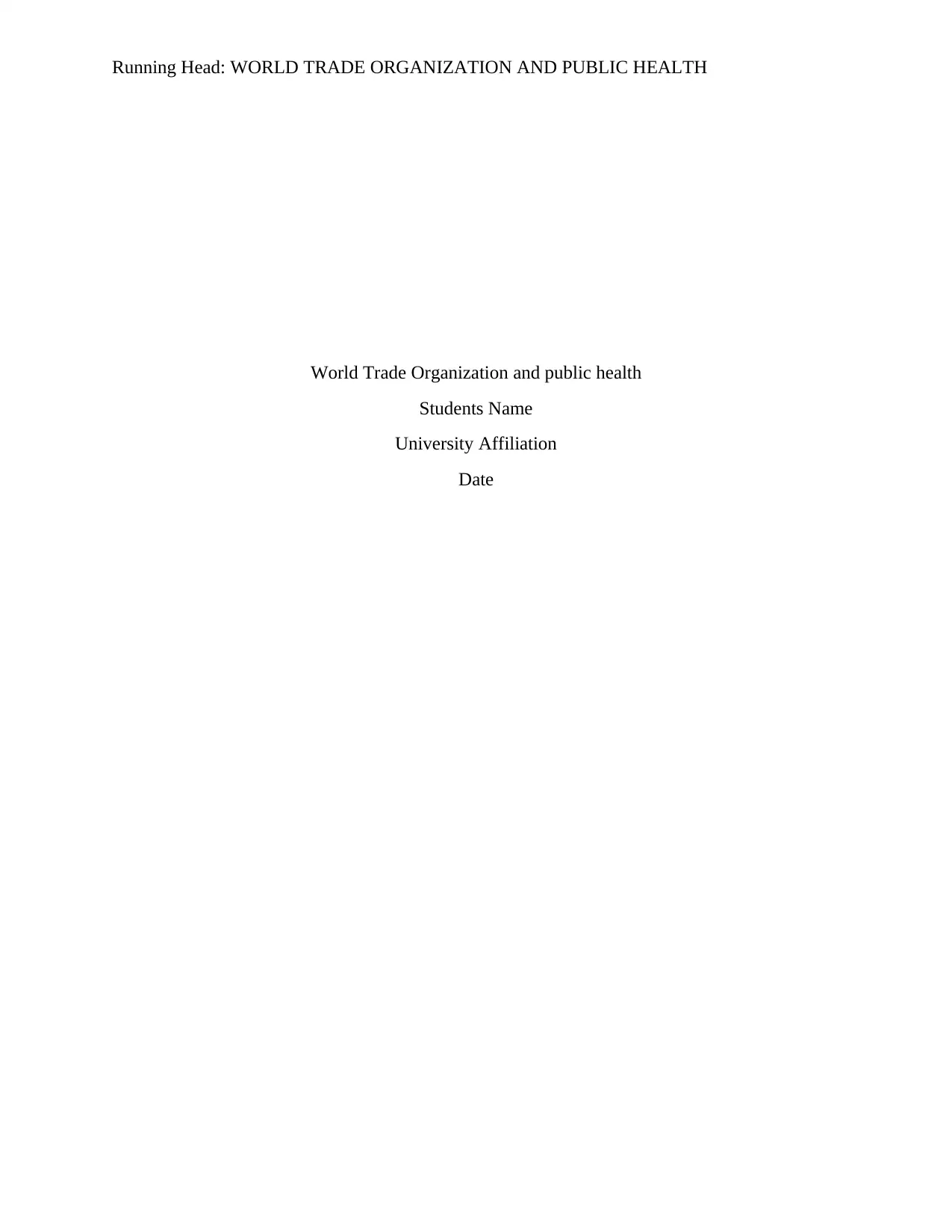An Analysis of the World Trade Organization and Public Health
VerifiedAdded on 2023/04/24
|4
|974
|381
Essay
AI Summary
This essay delves into the intricate relationship between the World Trade Organization (WTO) and public health. It begins by introducing the WTO, its functions, and the criticisms it faces regarding its prioritization of trade over humanitarian and health objectives. The essay argues for the reform of WTO regulations to better address public health concerns, acknowledging the organization's existing policies while highlighting the need for improvement. It discusses the WTO's agreements on food safety, pharmaceutical patents, and technical trade barriers, emphasizing their role in safeguarding public health. Furthermore, the essay addresses the evolving global landscape, including the rise of emerging economies and the shifting balance of power, advocating for their full inclusion in the WTO to reduce the influence of the U.S. and to facilitate the addressing of emerging health issues such as the transboundary transfer of hazardous chemicals. The conclusion reiterates the importance of the WTO and the necessity of reforming its regulations to protect global health effectively.
1 out of 4











![[object Object]](/_next/static/media/star-bottom.7253800d.svg)